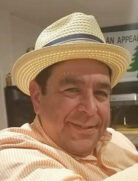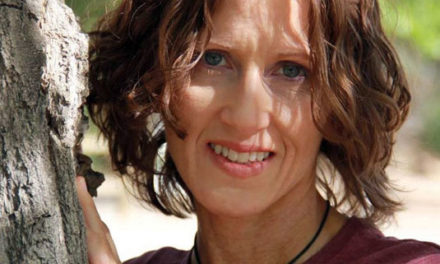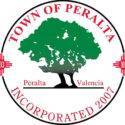In July 2008 I began a career within the judiciary that landed me in the world of jury service. Over that time, there have been significant changes in jury management approaches nationwide.
Few things impact the lives of every New Mexican like jury service and few things are as important. Jury service is an important part of self-government, and is as relevant today as when the United States began and is essential part of a healthy community.

Alonzo Garcia
The effects of the pandemic will likely take a decade to fully realize and perhaps another to understand the consequences. It was fascinating to witness courts in New Mexico and across the United States overcome the challenges of 2020 in order to ensure access to justice.
Some of those solutions may also take time to fully realize the impact while others are more noticeable and have an immediate impact.
One example is the passage of House Bill 185 during the most recent legislative session. The new law goes into effect on June 18, 2021, and eliminates a requirement that a person 75 years or older provide a notarized affidavit to request exemption when summoned for jury service.
The goal of the statutory change was to remove the burden placed on a juror to complete and sign an affidavit that requires a notarization. Nothing prevents New Mexicans aged 75 years or older from serving, the new law just makes it easier for them to request a permanent exemption based on their age if they wish to do so. This is one of the wonderful examples of how the judiciary continues to improve court-community relationships.
These relationships are the heart of jury management and are important because jury service affects every single New Mexican. For many, serving on a jury may be the closest thing to actively participating in self-governance.
In 1998, Clay Conrad wrote an article discussing the importance of trial by jury. In the article, he cites Thomas Jefferson who wrote, “I consider trial by jury as the only anchor ever yet imagined by man, by which a government can be held to the principles of its constitution.” His argument considers the citizenry as active participants in the jury process.
In the same article, Conrad quotes John Adams who said, “It is not only [the juror’s] right, but his duty … to find the verdict according to his own best understanding, judgment, and conscience…”
Thomas Paine writes about the importance of exercising one’s personal responsibility in Common Sense. Paine argues humans cannot follow clear “impulses of conscience” and writes, “… man … finds it necessary to surrender up a part of his property to furnish means for the protection of the rest.”
If one considers time as part of the “property” Paine mentions, participating in the jury process that time well spent.
Albert Einstein wrote, “In matters of truth and justice, there is no difference between large and small problems, for issues concerning the treatment of people are all the same.”
Participating in the jury process ensures all people have access to the same justice available to everyone else.
Perhaps it is how things are phrased? One might argue there is a clear difference between the phrase “jury duty” and “jury service.” One is an obligation, the other is an opportunity.
People are not motivated by the same things. One person may feel compelled to fulfill an obligation or duty. Another may be drawn to offer aid and assistance as a service.
My preference is to say “jury service.” It holds a different value than jury duty. While it may be a matter of semantics to some, it is a philosophical difference for me.
Growing up in Belén, my parents introduced us to the importance of serving our community at an early age. Through involvement with various local and international civic organizations, they laid an example that makes it easy for me to connect jury service with serving my community.
Through my own experience, I have been involved with Boy Scouts, Civil Air Patrol and have volunteered as a firefighter and EMT. I am convinced serving one another makes the community better for everyone. Perhaps that is why I am drawn to the work I do.
Whether you view it as an obligation or an opportunity, serving on a jury requires a community — including you. As courts reopen and life (eventually) returns to a semblance of familiarity and normalcy, many of us may find a similar piece of mail in our mailboxes asking us to report for jury service.
Getting a jury summons simply means your community needs help deciding a matter at the courthouse. Your time and effort is deeply appreciated and vital to the healthy functioning of our community. Your community needs you, answer the call.
(Alonzo Garcia is a Belen native, husband, father, and pastor. He is a jury management analyst with over a decade of jury management experience.)















